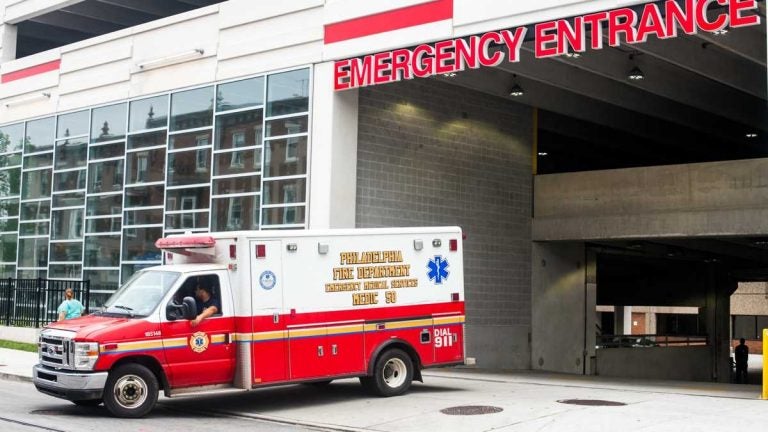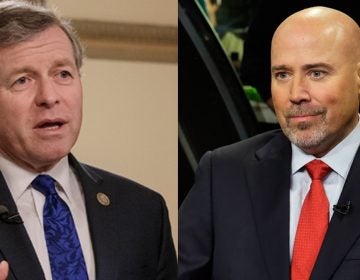U.S. could cut payments to hospitals treating uninsured patients
Hospitals treating poor populations could be seeing cuts to subsidies in 2017.

In this file photo, an ambulance pulls out of the emergency entrance at Temple University Hospital. (Brad Larrison for WHYY)
Hospitals treating poor populations, who may not be able to pay for services, receive offset payments from the federal government. For fiscal year 2017, Pennsylvania’s allotment was $616 million.
Now, hospitals could be seeing cuts to those subsidies.
When the Affordable Care Act took effect, the idea was to insure a lot more people, so if they ended up in a hospital, insurance would cover their costs. Charity care would go down and the need for the federal subsidies — called disproportionate share hospital or DSH adjustment payments — would become less vital for hospitals such as Temple University Hospital that rely on them.
The rate of uncompensated care did go down — about 13 percent from fiscal year 2015 to 2016 in Pennsylvania. But Jeff Bechtel, with the Hospital and Healthsystem Association of Pennsylvania, said it didn’t decrease enough.
“The dynamic at work is that Pennsylvania’s hospitals have not experienced enough of a decline in uncompensated care to be able to weather the fiscal cliff they face if DSH payments and the support for other programs are not renewed,” Bechtel said.
For the state’s hospitals — nearly a third already operating in the red — the cuts in DSH payments could force a reduction in services.
Temple, which receives the largest share of DSH payments in the state, said that cuts could “jeopardize our ability to sustain our community-focused mission and could harm Philadelphia’s most vulnerable citizens.”
Bechtel said cuts this fiscal year, which started Oct. 1, shouldn’t hit Pennsylvania too hard. But the cuts are scheduled to grow in subsequent years. By 2024, Pennsylvania’s DSH allotment would be cut by 70 percent.
Hospitals across the country have asked Congress to rethink the cuts. And a bill has been introduced to once again delay them.
WHYY is your source for fact-based, in-depth journalism and information. As a nonprofit organization, we rely on financial support from readers like you. Please give today.




